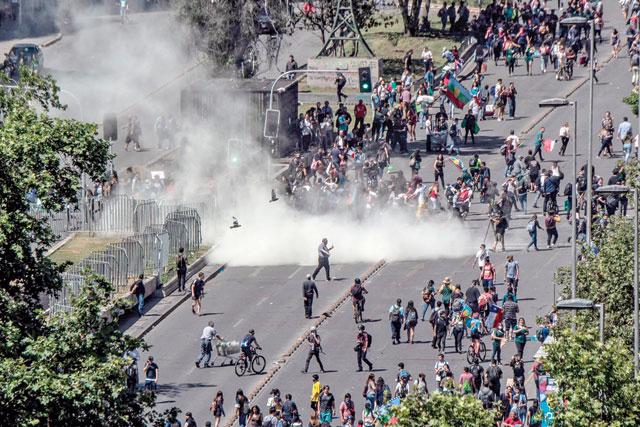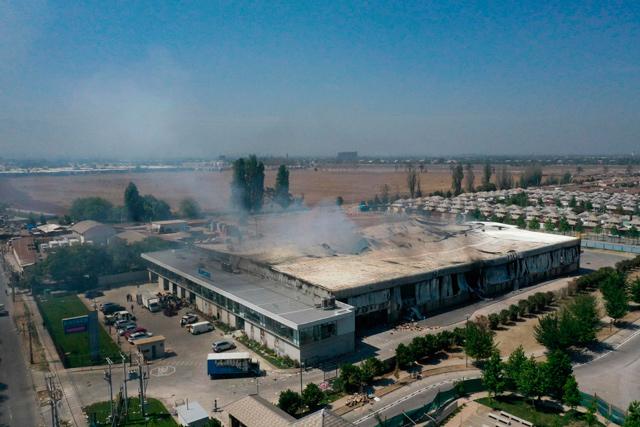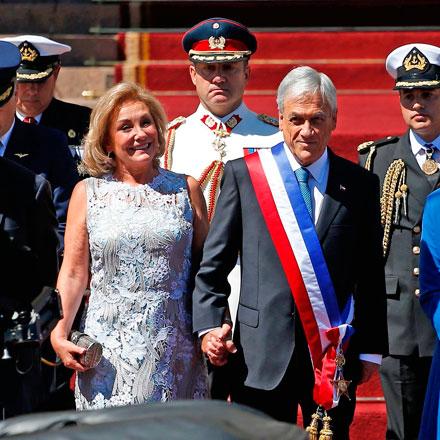You are here
Crisis-wracked Chile pulls out as APEC, climate meet host
By AFP - Oct 31,2019 - Last updated at Oct 31,2019

Demonstrators clash with security forces in Santiago on Wednesday (AFP photo)
SANTIAGO — Chile pulled out of hosting two major international summits on Wednesday as it struggled to restore order after more than ten days of civil unrest that left at least 23 dead.
President Sebastian Pinera said "common sense" dictated the decision to withdraw from the Asia Pacific Economic Cooperation summit and the Cop 25 climate change conference.
US President Donald Trump had said he was planning to meet Chinese counterpart Xi Jinping to lock down a "phase one" agreement at the November 16-17 APEC meeting that would partially have ended an 18-month trade war between the world's two biggest economies.
The White House said it looked forward to finalising an agreement "within the same timeframe", although analysts Eurasia Group said that may not happen until the end of the year.
APEC said it supported Chile's decision but gave no indication there would be a replacement summit this year, saying only that Malaysia would host the 2020 event.
Russian leader Vladimir Putin had also been due to attend APEC, while teenage Swedish activist Greta Thunberg was among 25,000 delegates expected for
COP 25.
The final of South American football's premier club competition, the Copa Libertadores, between Argentine holders River Plate and Brazilian giants Flamengo will go ahead on November 23 in Santiago, Chile's sports ministry said.
After more than 10 days of street protests, Pinera said Chile was not in a position to host either the APEC summit or the December 2-13 climate convention.
The pullout is seen as a blow to Chile's tourism industry, and the Santiago stock exchange dropped 2.8 points while the peso fell to its lowest rate against the dollar since 2003.
"This has been a very difficult decision, a decision that has been deeply painful because we know exactly how important APEC and COP are for Chile and the world," said Pinera.
"When a father has problems, he must always prioritise his family over other options. The same goes for a president, he must always put his own compatriots first, ahead of any other considerations," he added.
Public anger
Chile is grappling with its worst social crisis in decades, one that shows little sign of abating despite Pinera announcing a raft of measures aimed at placating protesters.
Demonstrators have demanded that the 69-year-old right-wing leader — whose personal fortune is estimated by Forbes at $2.8 billion — step down.
They have been angered by low salaries and pensions, poor public healthcare and education, and a yawning gap between rich and poor.
Pinera announced last week an increase in the minimum wage and pensions as well as measures to alleviate sky-high health care costs and a streamlining of public offices.
"I'm not rejecting any structural reform," Pinera said on Wednesday. "This is the time to listen to the people."
On Monday, he reshuffled his Cabinet for the third time since coming to power in March 2018, but the street movement continues.
Protests began on October 18 and during the first few days there was widespread destruction, arson and looting.
Demonstrations have been largely calm over the last week but there were violent clashes between demonstrators and security services on Monday, when shops were looted and a building set on fire.
Huge numbers took to the streets on Wednesday, with the country semi-paralysed as numerous shops and businesses remained closed.
Canceling the two major international events is more likely to backfire than to placate the demonstrators, University of Chile analyst Octavio Avendano told AFP.
He said it would be seen "as a sign of weakness and a sharpening of the conflict".
Chilean prosecutors announced on Wednesday night that they were conducting investigations into the deaths of 23 people during the crisis.
Sixteen of the dead were killed "during the alleged commission of so-called 'common' crimes", five people "by actions of agents of the state" and two "under state custody", prosecutors said on Twitter.
Previously, the official death toll had stood at 20.
A mission led by the United Nations High Commissioner on Human Rights Michelle Bachelet — Chile's former president — is expected to open a probe later this week into allegations of police brutality.
Justice and Human Rights Minister Hernan Larrain admitted on Tuesday that the government recognised that some incidents involving law enforcement during the protests "appear to be human rights violations".
Amnesty International has expressed concern about claims of "sexual torture", reports of eye injuries and situations in which police or military action directly led to a death.
Related Articles
SANTIAGO — Billionaire conservative Sebastian Pinera will begin a second term as Chile's president in March with a strong mandate after trou
SANTIAGO — Chile's death toll has risen to 11, authorities said on Monday, after three days of violent demonstrations and looting that saw P
SANTIAGO — Conservative billionaire Sebastian Pinera was sworn in as Chile's president on Sunday, returning to the job after four years of c


















